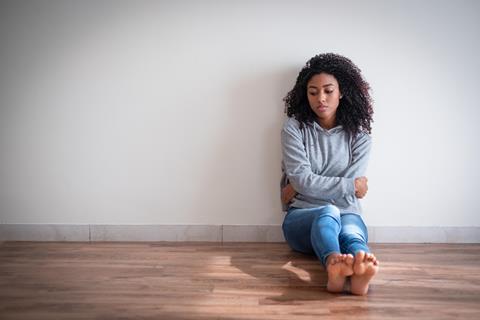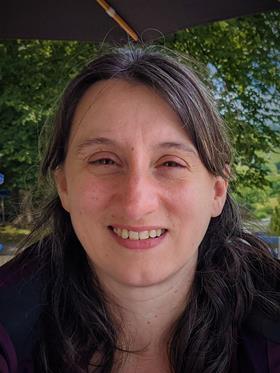Youth Mental Health Day prompts cognitive behavioural therapist Clarie Miles to reflect on an overstretched youth mental health service

A new report from the Mental Health Network warns that our mental health system for children and young people is at tipping point. This triggered old memories for me:
Aged 11 (in 1991). I’m called into a classroom after school by a teacher. My older sister sits rocking and crying in a chair and they don’t know what to do. I feel helpless.
Aged 13. My friend tells us she had to go to hospital because of food poisoning. She later confesses she overdosed on her mum’s painkillers.
Aged 17. Another friend shows me the razor blades he plans to cut himself with. I don’t know what to say.
Aged 21. I have my first episode of clinical depression while at university.
I felt alone
Looking back on my past now, I see poor mental health on so many occasions. I felt so alone, yet my experiences were not unusual. In the nineties, one in ten children had a diagnosable mental disorder in the UK, rising to one in nine by 2017 and, disturbingly, to one in six with the advent of the COVID pandemic in 2020.
Mental health provision has improved greatly over the years, and I rejoice every time it is mentioned in the media; every time another brick is removed from the wall of silence, stigma and shame. But the changes aren’t happening quickly enough for today’s children.
Stretched to breaking point
The pandemic has added pressure to an already stretched and under-resourced service. Among all children aged 5 to 16 there are increased levels of anxiety and stress, but it is children from lower income and BAME backgrounds, those who identify as LGBTQ+ and those with SEN or neurodiversity who have experienced the worst effects on their mental health, with the pandemic exacerbating existing health and social inequalities.
While many of the young people I know are resilient and coping remarkably well, those who are struggling may not be able to access the support and intervention they so desperately need. And for every child who is unsupported, there are adults around who care but feel helpless. Parents who are desperately seeking support for their children; teachers and youth workers seeing the problem but lacking solutions; professionals staring at an ever-increasing tide of referrals, knowing they can never do enough to meet the growing demand.
In the face of such insurmountable need, I feel the helplessness of my eleven-year-old self again. But I know the God of hope – the one who has the words to life itself – and I know that as Christians and kingdom-bringers we can respond with power by doing any of the following: · Lending our voices in support of the Tipping Point report’s recommendations for increased funding and joined-up working by writing to our MPs.
· Praying for those in positions of authority to be bold enough to make the changes our children need.
· Continuing to address the deep structural inequalities in our society through our foodbanks and other ministries. · Educating and equipping our churches by using resources such as Mind and Soul Foundation’s Mental Health Access Pack.
· Supporting and resourcing our youth and children’s workers. One excellent resource is Kintsugi Hope Youth Wellbeing Groups. Run by churches, these groups create a place of security and relationship for everyone to learn about and look after their mental health.
Being able to act in these ways means I am no longer helpless. And I have faith in Jesus that there is hope for all our children.

Clarie Miles is a cognitive behavioural therapist and an ambassador for Kintsugi Hope, a UK charity striving to make a difference to people’s mental wellbeing.



























